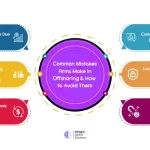Accounting outsourcing partnerships play a crucial role in today’s business landscape, particularly for organizations seeking to streamline operations, reduce costs, and focus on core competencies.
By entrusting accounting functions to specialized outsourcing providers, businesses can leverage expertise, technology, and scalability to enhance efficiency and accuracy in financial management.
But what ensures their long-term success and sustainability? Let’s delve into the dynamics of these partnerships and uncover strategies for maintaining fruitful collaborations over time.
Dynamics of Accounting Outsourcing Partnerships
To start with, accounting outsourcing partnerships involve the delegation of various financial tasks, such as bookkeeping, tax preparation, payroll processing, and financial reporting, to third-party service providers.
These partnerships can range from basic transactional services to comprehensive financial management and advisory roles, depending on the needs and preferences of the client organization.
Outsourcing providers, operating locally or globally, offer a range of services tailored to specific industries and regulatory requirements.
Benefits and Challenges Associated with Outsourcing Accounting Functions:
- Benefits:
- Cost savings through reduced overhead expenses and access to specialized expertise.
- Scalability to accommodate fluctuations in workload and business growth.
- Improved accuracy and compliance with regulatory standards.
- Enhanced focus on core business activities and strategic decision-making.
- Challenges:
- Potential loss of control over sensitive financial data and processes.Geographical or cultural dissimilarities can pose obstacles to effective communication.Concerns about data security, privacy, and confidentiality.Risks associated with dependency on external service providers and potential disruptions to operations.
What makes maintaining partnerships crucial for long-term sustainability?
Establishing and maintaining successful accounting outsourcing partnerships requires a long-term perspective focused on mutual trust, collaboration, and value creation.
While short-term gains are important, sustainable partnerships prioritize factors such as transparency, accountability, and continuous improvement.
Long-term sustainability ensures that both parties derive lasting benefits from the relationship, fostering mutual growth and success in the dynamic business environment.
What are the key factors that influence long-term sustainability?
In accounting outsourcing partnerships, several key elements influence their ability to thrive over time.
Clear Communication and Expectation Setting:
-
- Transparent communication fosters trust and understanding between the outsourcing provider and the client.
- It ensures that both parties are aligned regarding project objectives, expectations, timelines, and deliverables.
- Establishing Clear Expectations:
- Clearly defining the scope of services, responsibilities, and performance metrics prevents misunderstandings and conflicts.
- Setting realistic timelines and deliverables helps manage expectations and ensures timely delivery of services.
Building Trust and Relationship Management:
-
- Trust is the foundation of a successful outsourcing partnership, enabling open communication, collaboration, and risk-sharing.
- Building trust requires consistent delivery of high-quality services, adherence to commitments, and responsiveness to client needs.
- Strategies for Relationship Management:
- Regular communication through meetings, calls, and updates fosters rapport and strengthens the partnership.
- Establishing personal connections and understanding each other’s organizational cultures enhances mutual understanding and cooperation.
Continuous Performance Evaluation and Improvement:
-
- Regular performance evaluations provide valuable feedback on the effectiveness of the partnership and the quality of services delivered.
- Objective performance metrics, such as accuracy, timeliness, and client satisfaction scores, help assess performance.
- Strategies for Improvement:
- Identifying areas of improvement based on performance evaluations enables proactive problem-solving and process optimization.
- Implementing feedback mechanisms allows both parties to address concerns and make necessary adjustments to enhance performance.
Flexibility and Adaptability:
-
- Flexibility enables the outsourcing partnership to adapt to changing business needs, market conditions, and regulatory requirements.
- It allows both parties to respond promptly to unforeseen challenges and opportunities.
- Strategies for Adaptation:
- Developing contingency plans and alternative approaches helps mitigate risks and minimize disruptions to operations.
- Investing in ongoing training and upskilling of the outsourcing team ensures readiness to adapt to new technologies and processes.
By prioritizing these pointers, firms can establish resilient and sustainable accounting outsourcing partnerships that deliver long-term value and support mutual growth and success.
What are some best practices for long-term sustainability?
Here are a few best practices that could aid long-term sustainability.
Establishing a Comprehensive Service Level Agreement (SLA): A detailed SLA outlines expectations, responsibilities, and performance metrics for both parties. It ensures clarity and alignment regarding the scope of services, response times, and quality standards.
A detailed SLA ensures clarity and alignment on expectations. It would be ideal if you clearly define the scope, establish measurable metrics, include escalation procedures, and regularly review and update.
Investing in Technology and Training: Technology enhances efficiency and collaboration. Investing in training ensures proficiency in accounting tools and up-to-date knowledge of industry practices.
Leveraging technology enhances efficiency, accuracy, and data security. Firms and businesses can invest in training programs, provide continuous learning opportunities, and encourage knowledge sharing.
Regular Communication and Feedback Mechanisms: Regular communication maintains transparency and trust. Feedback mechanisms gather input and foster continuous improvement. Schedule periodic meetings to discuss project status and address concerns. Establish channels for feedback, encourage open communication, and act on suggestions promptly.
By implementing these best practices, organizations can strengthen the foundation of their accounting outsourcing partnerships, promoting long-term sustainability and maximizing the value derived from these collaborations.
Long-term sustainability in accounting outsourcing partnerships is crucial for efficiency, reliability, and mutual growth. Sustainable partnerships prioritize trust, transparency, and collaboration, mitigating risks and optimizing performance. Key strategies include clear communication, trust-building, continuous improvement, and flexibility. Establishing comprehensive SLAs, investing in technology and training, and implementing regular communication and feedback mechanisms are essential best practices. The future of outsourcing in accounting is promising, with a focus on innovation and continuous improvement driving growth and resilience. Embracing change and striving for excellence are vital for enduring success in the evolving landscape of accounting outsourcing partnerships.

